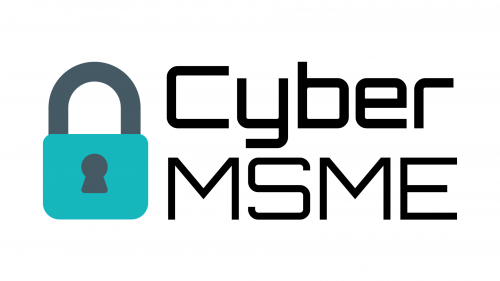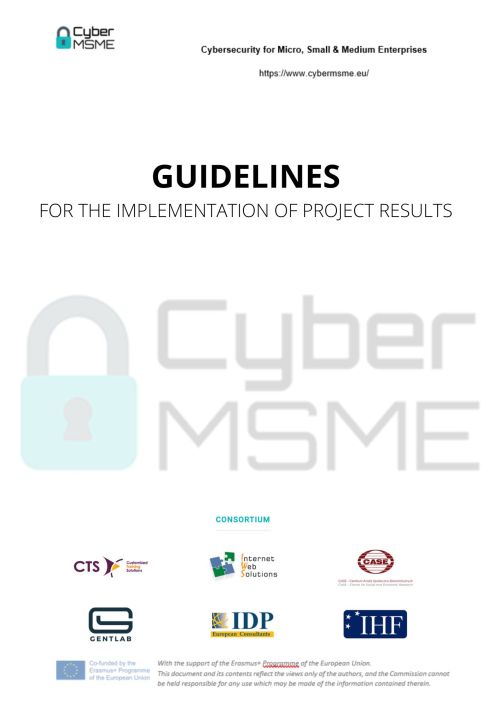Long-term sustainability and exploitation resources of the CYBER-MSME project: A validation of practices and recommendations from partners’ experience


Cybercrime is the fastest-growing form of criminal activity and appears to be targeting a specific segment of our economies. According to the latest figures, the economic impact of cybercrime rose fivefold between 2013 and 2017, and microenterprises and SMEs (MSMEs) – the backbone of the EU economy – are disproportionally impacted by the phenomenon.
Despite MSMEs being the most vulnerable group to the growing threat posed by cyberattacks, MSMEs are very seldom aware of the risks they face, let alone be prepared for them. In 2019, an industry report estimated that 66% of senior decision-makers in small businesses believe they are unlikely to be a target of online criminals (Keeper), whereas UNIPOL calculated that 14% of MSMEs are prepared to tackle cyber threats (2018).
Throughout 2021, CYBER MSME’ partners carried out a detailed and very comprehensive report which highlighted:
- State of MSMEs’ cyber-threats preparedness and awareness
- Identification of best practices as regards MSMEs support in the area of cybersecurity
- Further recommendations in the domain of innovation and competitiveness for private sector
The wealth of knowledge gathered by participating organisations on MSMEs cyber resilience has been finally consolidated in an official document “Guidelines implementation of project results” that is intended to provide for STKHs and group of interests key coordinates to implement within their ecosystem of practice Cyber MSME-inspired initiatives – or transfer as a whole into their initiatives the resources made available by partners.
From a more metaphorical perspective, the document can be intended as the digital legacy of the project: a storytelling on how to carry out capacity building programmes aimed at strengthening the IT and cyber readiness of small and micro-enterprises. The vast majority of these inputs stems from the deployment of the CYBER-MSME curricula in pilot version implemented by partners as formal activity of Intellectual Output 3 so as to validate the into-practice operationalisation, and the pedagogical reliability, of the training material.
The aforementioned document – available for free, in open access format and in multilanguage version via the official Open Education Resource Platform of the project – is very concise and comprehensive, so as to ease and maximise as much as possible its readability from users:
- The first section introduces readers to the general scale and scope of the project, and details specific learning outcomes developed by partners, and tested with targets
- The second-deep dives into the cyber security professional’s profile as envisioned by partners – informed by the needs-assessment carried out at transnational level in preparation of the curricula
- The third highlights content, structure and methodology of the pilot programme and the functionalities of the OER platform as a support tool to the testing phase
- Finally, a robust set of key recommendations and takeaways compiled by trainers and teachers, that readers and interested STKHs can leverage on to fine-tune and tailor their deployment strategy
All in all, this set of guidelines is intended to upscale the impact of CYBER-MSME even beyond the formal life cycle of the project, easing the replicability and portability of its deliverables, and most importantly, their functionalities and into-practice implementation.
CYBER MSM contributed to give continuity to an important stream of initiatives co-financed by the E+ Programme aimed at strengthening the digital and cyber literacy of EU private sector. For more information about the project, please consult: https://www.cybermsme.eu/

















